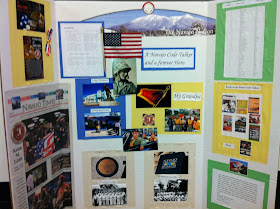We will all die. Every one of us.
To live as if we won't is to live a very, very small life.
To live as if we won't is to live a very, very small life.
-Joanne Cacciatore
The segue into spring semester brought with it my traumatic death course at ASU.
When I came to ASU (initially at the West campus), there was one death-course available, predominantly gerontological pedagogy. At the time, I'd asked my chair if I could design a traumatic death course: one that would focus on the deaths of babies, children, homicide, suicide, premature parental death - those anachronistic losses about which few dared speak of openly.
He was concerned, noting he wasn't sure if the course would get high enough enrollment to warrant all the time I would devote to new course development and approval. Nevertheless, I wanted to try.
The first offering enrolled more than 30 students. The second offering 40. Each subsequent year, interest and enrollment in the course grew. And, the student feedback was inspiring:
"This is by far the best course I've taken in my undergrad and grad studies!"
"This was not only a class. This was an experience!"
"Unforgettable. Life-changing!"
"Every student intending to work with those who are suffering should be required to take this course."
"This class has been the highlight of my program and I'm so grateful to be a part of it!"
"After the first week of classes, I already felt a renewed confidence in my ability to listen deeply to patients but today's emotional breakthrough was unprecedented for me."
"Truly an amazing class. I didn't want it to end!"
"I could not be more grateful for how this course has enriched my life in so many ways!"
"This class has been the highlight of my program and I'm so grateful to be a part of it!"
"After the first week of classes, I already felt a renewed confidence in my ability to listen deeply to patients but today's emotional breakthrough was unprecedented for me."
"Truly an amazing class. I didn't want it to end!"
"I could not be more grateful for how this course has enriched my life in so many ways!"
Though I haven't received the evaluations from this cohort yet, I could tell the students loved the information in the course. I could see it in their faces. They were learning. They were growing. They were becoming. So was I. On the final day of class, many students expressed sadness and wanted to continue. Some students retook the course even though they didn't need the credits. They were hungry for this type of training. And I was deeply moved by the response.
Death is becoming a popular guy in town. Maybe now he'll stop dressing in all-black, scaring the bejeebers out of people. This semester I had 60 students and a waiting list of more than a dozen (and the graduate Certificate in Trauma and Bereavement program is rapidly expanding!). I had five requests to audit the course. Students opened their minds and their hearts (hsin-hsin) through the wisdom of the ages, spiritual traditions, evidence-based practices, vipassana journals, bereaved parent panels, and a final creative arts project expressing their own experiences of grief or that of a client in their internship. The zenith of our class is a final day of sharing. Death, death, and more death = life, big life, and bigger life. That was the overwhelming theme - the thesis - upon which most all students said they agreed. While the topic was difficult and evocative, the course made their lives bigger not smaller. Their hearts grew, they did not contract.
Ah, Death, the great teacher of Life. Delicious irony.
My hands are pressed together and I bow to all the students who courageously and with great wisdom embarked on the journey toward awareness of Death. And to the bereaved parents and grandparent on the panel. Simply, you cannot learn so much of this in any book.
It was a bittersweet pleasure to be with you. I will not forget our time together. Thank you- gratitude, gratitude, gratitude.
We simply cannot fully live until we fully explore death.















You do good work. So many are fearful of death but you help open their hearts. Your course sounds amazing.
ReplyDeleteThank you so much Amy. <3 It's an awesome course... the students and the parents who come to teach make it unforgettable for them!
ReplyDeleteIt does sound like a good course that will help them understand loss and give compassion but also to prepare them as we have realized now it can happen to anyone and for most of us we were so innocent of such tragedy until it happened to us.
ReplyDeleteCongratulations on your insightful course and helping others to see the 'Gift of Grief - or Death.'
ReplyDeleteI love your quote; "Ah, Death, the great teacher of Life. Delicious irony." So true, death has taught me how to live and appreciate everything I have - today...
Can others like myself take your course online or is it only offered in a university setting?
with love
Diana x
I would LOVE to take your course, Joanne. I am so happy that it has become so successful. It shows how needed a course like this is. Well done!
ReplyDeleteThank you Diana. The course is five days over the course of three weeks at ASU (Friday, Saturday, Friday, Fri/Sat). Thought I've been encouraged to put the course online, I simply cannot bear to do it because it would not be the same course. There is too much to gain from the sangha of being there. :-)
ReplyDeleteKarin, would love to have you!